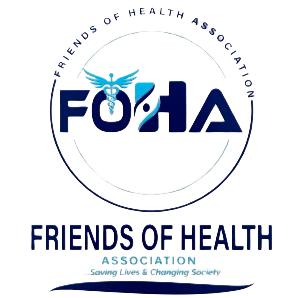On the 22nd of March, 2009, FOHA had a church outreach on Diabetes, Hypertension and stroke in the following churches at Goaso in the Brong Ahafo Region. The churches were Victory Assemblies of God Church, Presbyterian Church, Christ Apostolic Church, and the Roman Catholic Church. It was a very successful programme.
On the 31st March, 2009, a health education programme was again organized with the Ghana Police Ladies Association (GPOLAS)- Goaso Branch also on Diabetes, Hypertension and Stroke.
On the 1st of April 2009, a programme was again organized with the Pentecostal Pastors and Wives in Asunafo District-Goaso comprising of over hundred Pastors and wives including the area Apostle – Apostle Ampiadu. It was a programme that one could not afford to miss.
On the 5th of April, 2009, a community outreach was organized in Yamfo, a town in the Tano North Constituency of Brong Ahafo Region. We were nine team members who made it to the programme. We first of all went to their information centre to speak about the programme after which we went to the churches to educate them on Diabetes, Hypertension and Stroke. From the churches, we came to the community centre where we mounted canopies and arranged chairs for blood pressure assessment and counseling to be done. We educated the public and those around through a public address system whiles the B/P check up was ongoing after which they were counseled either on their diet, lifestyle modification or advises to report to the nearest health centre for their condition to be confirmed. It was such a successful programme to watch. Thank God we had a video coverage of that programme available. We left the town at 5:00pm on this same day. The people of the town, particularly the opinion leaders congratulated us for bringing such a programme to them without cost and requested for more.
In 2009, FOHA once again organized a health education programme with the retired Teachers’ Association Goaso Branch on Diabetes, Hypertension and Stroke. The number of the people was above sixty old men and women above the age of sixty. I think this maiden association is making a lot of impact in our society and deserves commendation. What do you think? Why don’t we support FOHA for its vision to be accomplished. Glory be to God for the great things He has done.
